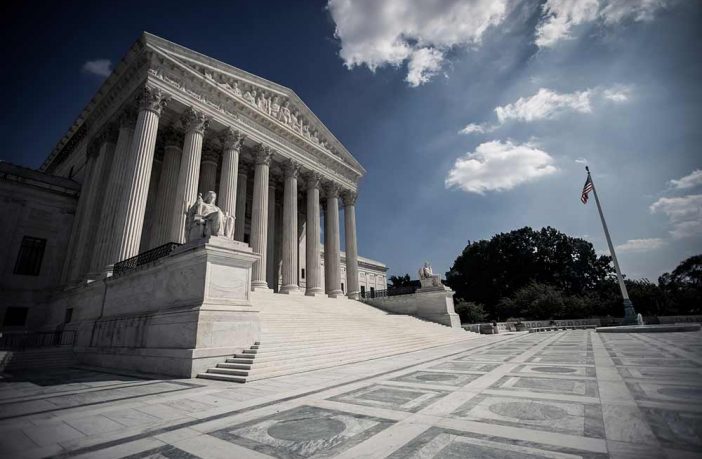After hearing final oral arguments this week, the Supreme Court is set to determine if the Trump administration can exclude illegal aliens from the decennial Census reapportionment of House seats—an initiative that seeks to ensure that American citizens and legal immigrants are not denied representation and federal funding.
Mainstream media outlets have overwhelmingly reported that several justices appeared ‘skeptical’, ‘wary’, and ‘doubtful’ of the president’s proposition, suggesting that the move faces a number of technical procedure hurdles and that it would be difficult to confidently calculate the figures demanded.
It is unclear how the Supreme Court will ultimately rule, but given the Court’s conservative majority and the Trump administration’s success with immigration cases at the high court—including its travel ban—it is not unfounded to think it could rule in favor of the administration.
In July, President Trump issued an executive order that mandated the Department of Commerce to exclude illegal aliens from its court for apportionment, but the move faced immediate blowback from open borders advocacy groups, activist judges, and the mainstream media. These groups made the argument that federal funding and political representation for states should be calculated based on all individuals residing in the state—not just lawfully present individuals.
But for decades, the constitutionally mandated Census has included illegal aliens for apportionment, which has resulted in American citizens and legal immigrants being denied representation and funding. What needs to be determined is whether the Constitution requires that unlawful residents be awarded representation in Congress and federal funding. The decennial Census determines each state’s representation in Congress, its number of electoral votes, and its allocation of federal funds
If a state has a larger illegal alien population, it will generally receive more federal funding and political representation. States with large illegal alien populations—such as New York and California—are those that encourage illegal immigration through sanctuary policies or generous benefits such as California’s multimillion-dollar COVID-19 financial relief fund for illegal aliens. In turn, such states typically receive more funding and representation.
The Supreme Court’s ruling will have significant ramifications. If it rules against the administration, it is likely states will continue to encourage illegal immigration to grow their overall state population. Should it uphold the administration’s order, there will be a shift in political representation and federal funding benefiting states with fewer illegal aliens.
Nevertheless, the administration’s arguments before the Supreme Court brought much needed awareness to the issue and revealed that President Trump is taking long overdue action to safeguard American and legal immigrant interests and their constitutional rights.





1 Comment
Pingback: Will the Supreme Court docket Exclude Unlawful Aliens from Census Apportionment? - Wanderlive.in